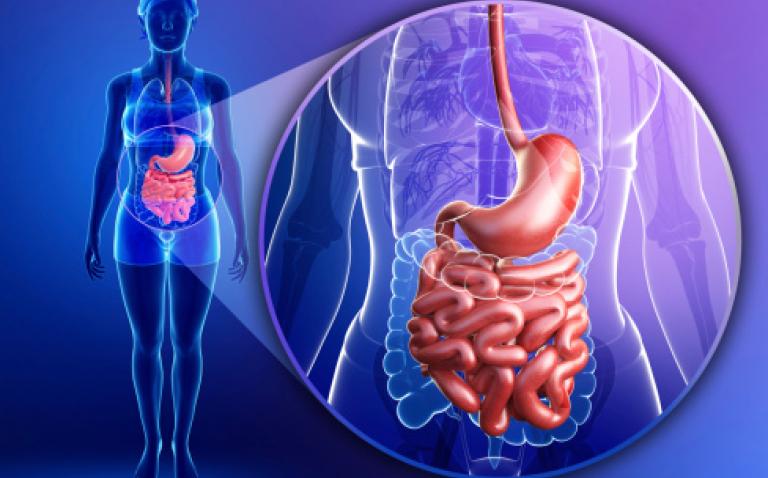Janssen-Cilag International NV has announced that the Committee for Medicinal Products for Human Use (CHMP) of the European Medicines Agency (EMA) adopted a positive opinion recommending marketing authorisation in the European Union for the use of Stelara® (ustekinumab) for the treatment of adult patients with moderately to severely active Crohn’s disease who have had an inadequate response with, lost response to, or were intolerant to either conventional therapy or a tumour necrosis factor alpha (TNFα) antagonist or have medical contraindications to such therapies.
If approved, ustekinumab will offer people with Crohn’s disease a new treatment option to induce and maintain remission of their disease symptoms.1
“Crohn’s disease is a debilitating chronic condition that has a huge impact on patients’ quality of life. Patients experience unpredictable disease flares and many have lost response to currently available treatments, so it is vital that new therapeutic options are made available to help control their symptoms,” said Frederic Lavie, EMEA Therapeutic Area Leader Immunology, Cardiovascular and Metabolics, Janssen. “Ustekinumab has shown clinical benefit, is generally well tolerated, and has a convenient dosing regimen for people living with Crohn’s disease who are eligible for a biologic therapy.”
The CHMP adopted the opinion based on data from three pivotal Phase 3 trials which included approximately 1400 patients with moderately to severely active Crohn’s disease:2,3,4
- UNITI-1 demonstrated significantly higher rates of clinical response at Week 6 for ustekinumab treatment groups compared with the placebo group (p=0.003) in patients who had failed on TNFα antagonist therapies.2 The major secondary endpoints of clinical remission at Week 8 and clinical response at Week 8 were each also significantly higher with IV ustekinumab induction versus IV placebo (p<0.001 for each).2 Clinical response was defined as a reduction from baseline in the Crohn’s Disease Activity Index (CDAI) score of ≥100 points or being in clinical remission. Clinical remission was defined as the CDAI <150.2 The CDAI is a symptom-based disease assessment tool that quantifies symptoms of Crohn’s disease and measures improvement with treatment.5
- UNITI-2 also demonstrated significantly greater clinical response at Week 6 with IV ustekinumab induction compared to IV placebo (p<0.001) in a population of patients who had previously failed conventional therapy, but who had not previously failed TNFα antagonist therapies. The secondary endpoints of clinical remission and response at Week 8 were also each both significantly higher in the ustekinumab groups compared to placebo (p<0.001 in each).3
- IM-UNITI studied maintenance in patients who achieved clinical response 8 weeks after a single IV infusion of ustekinumab in the UNITI-1 and UNITI-2 Phase III induction studies. IM-UNITI showed that a significantly greater proportion of patients in the subcutaneous ustekinumab maintenance groups was in clinical remission at Week 44 versus placebo (p=0.005 in every 8 week and p=0.040 in every 12 week groups; primary endpoint). Clinical response at Week 44 was also significantly greater with both regimens versus placebo at Week 44. Other major secondary endpoints of clinical remission at Week 44 among patients in remission after induction and corticosteroid-free remission were significantly greater for every 8 week ustekinumab maintenance versus placebo.4
Ustekinumab was generally well tolerated as an induction and maintenance therapy in all three studies, and the safety profile of ustekinumab in the Crohn’s disease clinical development program remained consistent with the established safety profile of ustekinumab based upon current labelled indications.
Following this positive opinion, a final decision from the European Commission is expected later this year. Janssen is also currently seeking approval for ustekinumab for the treatment of adult patients with moderately to severely active Crohn’s disease in the US.
References
- EMA. Meeting highlights from the Committee for Medicinal Products for Human Use (CHMP). Summary of opinion 15 September 2016. Available at: http://www.ema.europa.eu/docs/en_GB/document_library/Summary_of_opinion/… (last accessed September 2016).
- Sandborn W, et al. AIBD 2015:Abstract O-001.
- Feagan B, et al. UEGW 2015:Abstract UEG15-LB-5668.
- Sandborn W, et al. DDW 2016:Abstract 768.
- Best WR, et al. Gastroenterol 1976;70(3):439–44.










